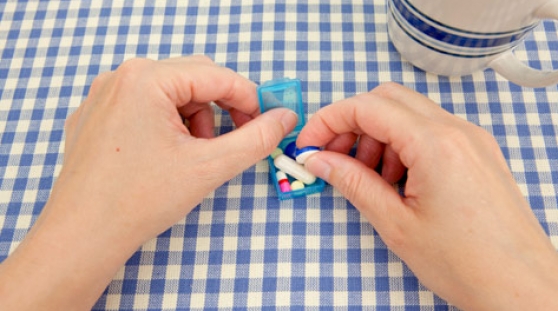Sleep Disorders Health Center
Table of Contents

Sleep Apnea
The goals of treating obstructive sleep apnea are to:
- Restore regular breathing during sleep
- Relieve symptoms such as loud snoring and daytime sleepiness
- Treatment may help other medical problems linked to sleep apnea, such as high blood pressure. Treatment also can reduce your risk for heart disease, stroke, and diabetes.
Specific Types of Treatment
Lifestyle changes, mouthpieces, breathing devices, and/or surgery are used to treat sleep apnea. Currently, there are no medicines to treat sleep apnea.
If you have sleep apnea, talk to your doctor or sleep specialist about the treatment options that are most appropriate for your specific condition.
Lifestyle changes and/or mouthpieces may be enough to relieve mild sleep apnea. People who have moderate or severe sleep apnea may need breathing devices or surgery.
Insomnia
Lifestyle changes often can help relieve acute (short-term) insomnia. These changes may make it easier to fall asleep and stay asleep.
A type of counseling called cognitive-behavioral therapy (CBT) can help relieve the anxiety linked to chronic (ongoing) insomnia. Anxiety tends to prolong insomnia.
Several medicines also can help relieve insomnia and re-establish a regular sleep schedule. However, if your insomnia is the symptom or side effect of another problem, it's important to treat the underlying cause (if possible). Your doctor also may prescribe medicine to help treat your insomnia.
Medication
Insomnia
Many prescription medicines are used to treat insomnia. Some are meant for short-term use, while others are meant for longer use.
Talk to your doctor about the benefits and side effects of insomnia medicines. For instance, insomnia medicines can help you fall asleep, but some people may feel groggy in the morning after taking them.
Rare side effects may include sleep eating, sleep walking, or driving while asleep. If you have side effects from an insomnia medicine, or if it doesn't work well, tell your doctor. He or she may prescribe a different medicine.
Some insomnia medicines may be habit forming. Talk to your doctor about the benefits and risks of insomnia medicines.
Over-the-Counter Products
Some over-the-counter (OTC) products claim to treat insomnia. These products include melatonin, L-tryptophan supplements, and valerian teas or extracts.
The Food and Drug Administration doesn't regulate “natural” products and some food supplements. Thus, the dose and purity of these products can vary. How well these products work and how safe they are isn't well understood.
Some OTC products that contain antihistamines are marketed as sleep aids. Although these products may make you sleepy, talk to your doctor before taking them.
Antihistamines pose risks for some people. Also, these products may not offer the best treatment for your insomnia. Your doctor can advise you whether these products can benefit you.
Therapies
Insomnia
Lifestyle changes also may help relieve some narcolepsy symptoms. You can take steps to make it easier to fall asleep at night and stay asleep.
- Follow a regular sleep schedule. Go to bed and wake up at the same time every day.
- Do something relaxing before bedtime, such as taking a warm bath.
- Keep your bedroom or sleep area quiet, comfortable, dark, and free from distractions, such as a TV or computer.
- Allow yourself about 20 minutes to fall asleep or fall back asleep after waking up. After that, get up and do something relaxing (like reading) until you get sleepy.
Certain activities, foods, and drinks before bedtime can keep you awake. Try to follow these guidelines:
- Exercise regularly, but not within 3 hours of bedtime.
- Avoid tobacco, alcohol, chocolate, and drinks that contain caffeine for several hours before bedtime.
- Avoid large meals and beverages just before bedtime.
- Avoid bright lights before bedtime.
Other Therapies
Light therapy may help you keep a regular sleep and wake schedule. For this type of therapy, you sit in front of a light box, which has special lights, for 10 to 30 minutes. This therapy can help you feel less sleepy in the morning.
